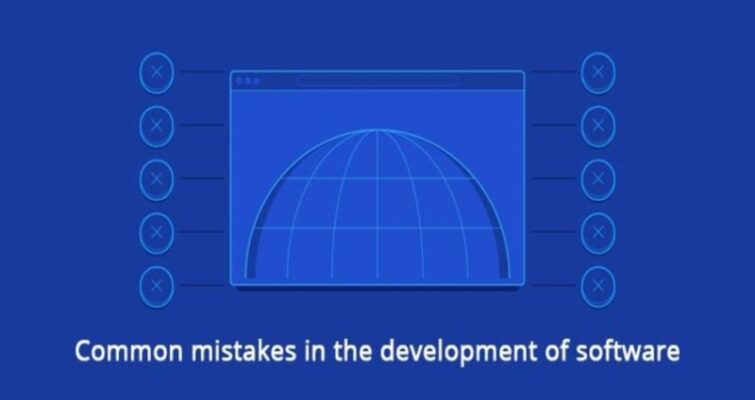Software development brings an organization to new integration heights. It enables the brand to be accessible from almost anywhere, anytime through a smartphone or a desktop computer. Having a software solution also boosts sales and service.
With the absence of online marketing, it’s not easy to imagine a successful business model nowadays. Organizations and businesses of all shapes and sizes today need online platforms as well as mobile apps ideas since they impact the way customers reach out and shop for products and services.
Some organizations require more complex solutions, making them look for such services. Choosing to build custom software however could seem scary, for the simple reason that you have no idea what you’re going to get for the price you’re paying. Custom software development is the solution that most organizations have no idea they need.
A tailored solution could build and maintain software for any big or small brand that believes their issue could be resolved via technology. The software app is designed to suit the particular requirements and needs of a specific organization alone. As it is developed solely for that organization, it could address the needs more accurately and provide in-depth, exclusive solutions.
A custom application development service often is handled by a third-party, and in some instances, an in-house team of developers. Usually, the process is iterative, with changes done as more requirements are determined. For developers and engineers anywhere, it is important to be aware of some of the common errors that could come up with developing a tailored solution and how best to minimize them.
1. Playing fast and loose
The best way of undercutting code is the failure to shore up the basics. This usually means overlooking how inconsistent user behavior impacts the program. Some custom software developers exploit the mistake of catching code features to cover up the failures.
They cover the entire stack with a big massive catch with any possible exceptions. These developers dump code error into a log file, return error code, and then let somebody else deal with it.
2. Failure to simplify control
Developers, too often invite disaster by not simplifying control over code tasks. For every task, there must only be one place in the code. With two places, odds are that someone would change one but not the other one. Chances are, if there are more than two, it would even become worse than someone who fails to keep all of them working in the same way.
The more complex the controls are, the implementing changes are harder. A lot of beginner developers discovered that debugging their software becomes harder as it becomes more complicated. If you have several places for one control, you won’t be able to resolve issues fast.
3. Delegating a lot to frameworks
The magic tools, in some instances, only lead to confusion. By functionality abstraction and assuming what we want, all too often frameworks could leave developers at a loss as to what went wrong in their code. Take, for instance, if you need to work on Ruby on Rails, then you should know them.
As the application grows, it will become more and more dependent on the nearly-trivial bits of external knowledge. In the end, the sum of all the nearly-trivial bits will eventually be non-trivial. It’s an entire ecosystem of things you should learn to work on the app and keep in mind while debugging.
4. Relying too much on magic boxes
Computer programmers are lucky because, after all, computer scientists keep on building wonderful libraries packed with endless options to fix what ails the code. The only issue is the ease with which you could leverage the work of someone else and could hide complex issues that gloss over, or even worse, introduce new code pitfalls.
A major source of weakness is cryptography. Far too many custom software developers assume that they could link to the encryption library, push a single button, and get iron-clad security. However, the reality is that most of these magic algorithms have subtle weaknesses, and to avoid these requires learning more than just the Quick Start manual section.
5. Trust on the client
The worst security bugs occur most of the time when developers assume that the device of the client would do the right thing. A code for instance that’s written to run in a browser could be rewritten by a browser to execute an arbitrary action if any. If the developer doesn’t do a double-check on all the data that’s coming back, anything could go awry.
There are a lot of ways that clever individuals could abuse server trust. To make matters worse is that severe holes in security could occur when three or four somewhat benign holes are tied together. One programmer may allow the client to write a file with the assumption that the directory permission would be enough to stop wayward writing if any.
5. Reinventing the wheel
Writing your libraries simply because you think you know how to code better could haunt you. For attackers, growing your cryptography is always a welcome sight. The answer rests in managing the risk realm.
A lot of libraries need not be perfect, thus grabbing a magic box is likely to be better compared to the code you write yourself. The library includes routines that are written and organized by a group. While they may make mistakes, the bigger process could eliminate most of them.
7. Following too many trends
Often, trends start with a good plan for fixing several baffling issues. If we could only rewrite code with a new framework, language, or collection of libraries, we could get rid of this difficulty. The problem isn’t the rewriting code cost, although it’s often substantial—but the shift to a new paradigm, which could leave a mirror image of the failure mode.
The Majority of the frameworks and ideas only offer relevant features. Everything else hasn’t been yet written. Of course, you get to save work on the ready features, but often you’ll write more of the glue, filler code, or background.
Conclusion
Software development, particularly a customized solution is a continuous learning experience. As you work, you’re bound to make mistakes, and this is okay since they serve as learning opportunities. Avoiding the common mistakes in software development will help you in learning faster.

Simon Halep Technical Content Writer at tatvasoft.com.





